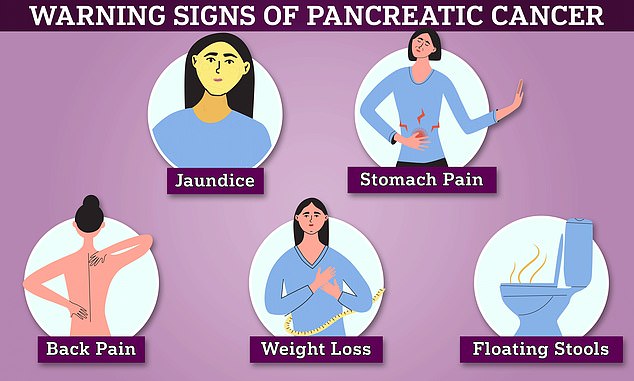Cancer experts reveal how aggressive treatment changed Sven Goran Eriksson’s face – former England manager now unrecognisable
Terminally ill former England manager Sven-Goran Eriksson appears unrecognisable in previews of a documentary in which he shares a farewell message.
The 76-year-old announced in January that he has pancreatic cancer and said he has only a year left in the “best case scenario.”
Eriksson gave a heartbreaking final message at the end of an Amazon Prime documentary about his life, called ‘Sven’, which airs Friday night.
“I’ve had a good life,” he said. “I think we’re all afraid of the day we die, but life is also about death.”
While fans took to social media to express their sadness over Eriksson’s declining health, some had questions about his unusually swollen and round face.
Sven-Goran Eriksson has given a farewell message in a documentary in which he looks back on his life

Sven-Goran Eriksson’s rounder, plumper appearance is the result of his aggressive cancer treatment, experts say
Fans on the online forum Reddit said he was “clearly unwell.”
Another added: ‘He looks bloated from the steroids he’s probably been prescribed for appetite and fatigue.’
Experts have told MailOnline the football hero’s new look is likely the result of a series of aggressive cancer treatments, including chemotherapy and steroids to reduce inflammation.
Pancreatic cancer is sometimes called the ‘silent killer’ because of its subtle symptoms and claims around 10,000 lives in the UK each year.
Treatments are often futile because the disease is usually discovered at a late stage. Only 40 percent of patients survive more than five years after diagnosis.
The main treatments for pancreatic cancer are chemotherapy, radiation therapy and surgery.
However, it is the steroids used in conjunction with other treatments that can cause swelling, said Professor Tobias Arkenau, medical oncologist at The Princess Grace and The Wellington Hospital.
Steroids such as dexamethasone, prednisolone and hydrocortisone not only help people cope better with chemotherapy by reducing illness and preventing bad reactions, they also give patients a boost that makes them feel stronger, explains Professor Arkenau.

Sven-Goran Eriksson, pictured ahead of the 2006 World Cup quarter-final in Germany, announced in January that he had pancreatic cancer and said he had a best-case scenario of just a year to live.

Pancreatic cancer is called a ‘silent killer’ because of the subtle symptoms that are often not noticed until too late
He added: ‘The side effects unfortunately are swelling of the face and neck, which is quite common.’
Not only do steroids increase appetite, but the drugs also cause fluid retention in areas like the face and neck, which can make the face appear puffy.
“It gives you a very strong neck and a round face, but it can also cause very thin legs, because steroids actually reduce muscle mass and tone,” says Professor Arkenau.
According to Pancreatic Cancer Action, pancreatic cancer can increase your risk of a blood clot and some treatments, such as chemotherapy, also increase the risk.
‘The risk of clotting is greatest with pancreatic cancer,’ says Professor Arkenau.
According to Cancer Research UK, this is because people with pancreatic cancer often have ‘sticky’ blood.
One reason for this is that the cancer cells produce chemicals that stimulate the body to produce clotting factors, proteins produced by the liver that help stop bleeding.
Blood clots can form in the deep veins of the body, most commonly in the leg. But they can also develop in smaller veins anywhere, such as the face and neck.
The pancreas is a tadpole-shaped organ that is part of the digestive system and plays an important role in hormone regulation.
It is located just behind the stomach and is about 25 cm long.
In digestion, it aids in the production of enzymes that help the body break down food into the nutrients it needs.
It also plays an important role in the production of hormones responsible for regulating blood sugar levels in the body.
Possible symptoms of pancreatic cancer include jaundice, where the whites of the eyes and skin turn yellow, along with itchy skin and darker urine.
Other possible symptoms include loss of appetite, unintentional weight loss, constipation or bloating.
Although the symptoms are unlikely to indicate cancer, it is still important to have them checked out by a GP early to be on the safe side, especially if patients have been experiencing them for more than four weeks.
